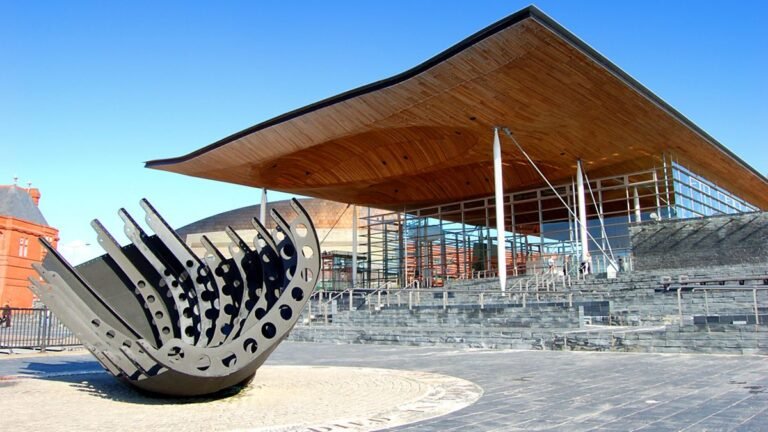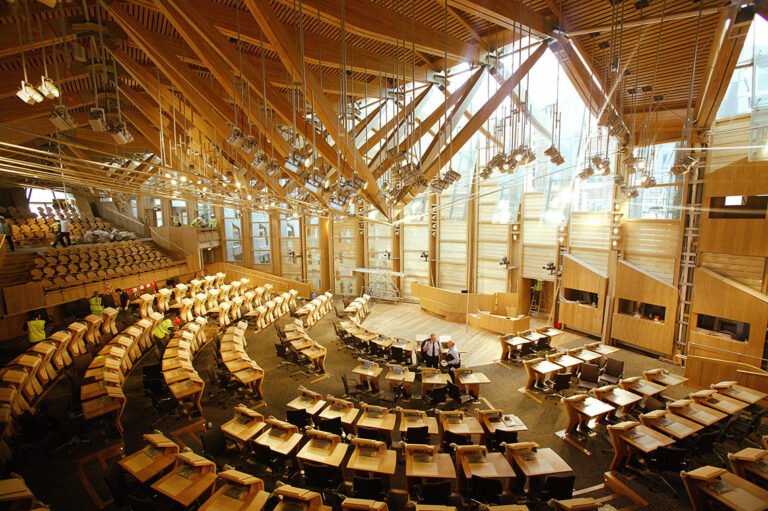The Labour Party is a major political force in the UK. It has shaped policies and influenced society for over a century.
Founded in the early 20th century, the Labour Party emerged from the trade union movement and socialist groups. Its core mission is to represent the working class and promote social justice. The party strives for economic equality and improved public services.
Labour has been key in establishing welfare systems and healthcare reforms. Its leaders have also served as Prime Ministers, guiding national policies. Understanding the Labour Party helps one grasp UK politics. It’s more than a political party; it’s a movement with deep roots. This exploration reveals its impact on society and its ongoing role in shaping the future. Dive into this fascinating journey with us.
Origins And Evolution
The Labour Party has been a major force in British politics for over a century. Its journey from humble beginnings to a prominent political party is intriguing. Understanding its origins and evolution helps to appreciate its present role. Let’s explore the foundational ideas and significant milestones.
Founding Principles
The Labour Party emerged from the need to represent working-class interests. It was founded in 1900 by trade unions and socialist groups. Their aim was to give a voice to workers in Parliament. The party sought fair wages, better working conditions, and social justice. These principles remain central to its ideology today.
Key Historical Milestones
Several key events shaped the Labour Party’s evolution. In 1924, Ramsay MacDonald became the first Labour Prime Minister. This marked a significant shift in British politics. The party introduced the National Health Service in 1948. This was a major achievement for social welfare. The 1997 election win under Tony Blair led to modernization of the party. It embraced new policies while retaining its core values.
The Labour Party’s history reflects its adaptability and commitment. It continues to evolve to address contemporary issues. Its journey is a testament to its enduring impact on British society.
Core Ideologies
The Labour Party stands for fairness and equality. Its core ideologies focus on social justice and economic equality. These principles guide the party’s policies and actions. They aim to create a better society for everyone. Understanding these core beliefs helps in grasping the party’s goals.
Social Justice
The Labour Party believes in social justice. This means ensuring equal rights for all. It aims to reduce poverty and discrimination. The party advocates for fair treatment and opportunities. It works to protect vulnerable groups in society. Social justice drives the party’s commitment to inclusive policies.
Economic Equality
Economic equality is a key focus for the Labour Party. The party seeks fair distribution of wealth. It aims to close the gap between rich and poor. This includes supporting higher wages and fair taxes. Economic policies strive for equal opportunities in the workforce. The goal is a balanced economy that benefits all.
Leadership Dynamics
The Labour Party has long been a central pillar of political discourse in the UK. Its leadership dynamics offer a fascinating lens into the party’s evolution and its response to changing times. Leadership within the party is not just about who stands at the helm; it’s about navigating challenges and inspiring a collective vision. When you think about leadership in the Labour Party, what comes to mind?
Influential Leaders
Throughout its history, the Labour Party has been shaped by leaders who left a profound impact. Think of Clement Attlee, who championed the welfare state post-World War II. His vision brought transformative social changes. Then there’s Tony Blair, whose New Labour movement reshaped the party’s image in the late 1990s. Blair’s tenure marked a shift towards centrist policies, attracting a broader voter base.
Influential leaders often bring fresh perspectives, and their actions resonate beyond their term. But leadership isn’t just about having a vision; it’s about rallying people to believe in that vision. How do you think these leaders managed to inspire such trust and loyalty?
Modern Leadership Challenges
Today’s leaders face a different set of challenges. With rapidly changing political landscapes and digital transformations, connecting with the electorate has become more nuanced. Leaders need to address these complexities while staying true to core party values.
Social media plays a crucial role in shaping public perception. Leaders must be strategic in their communication, balancing authenticity with diplomacy. Moreover, the current socio-economic climate demands adaptability. How can leaders ensure they remain relevant and responsive?
Reflecting on these dynamics, leadership within the Labour Party is a balancing act. It’s about acknowledging past influences while bravely facing modern challenges. As you consider the party’s future, what qualities do you believe are essential for its leaders to thrive?
Policy Innovations
Policy innovations within The Labour Party are capturing attention and sparking debates across the country. These innovations reflect the party’s commitment to addressing pressing issues with fresh perspectives and bold strategies. As you explore these ideas, consider how they might impact you, your community, and the future of the nation.
Healthcare Reforms
The Labour Party is advocating for significant changes in healthcare. They aim to streamline access to quality medical services for all citizens, ensuring that nobody is left behind due to financial constraints.
Have you ever had to wait weeks for a doctor’s appointment? The party proposes increasing the number of healthcare professionals to reduce waiting times.
Imagine having a healthcare system where patients are prioritized based on need rather than ability to pay. This is part of the Labour Party’s vision.
Consider the impact of these reforms on your family’s health and well-being. Can these changes lead to a healthier and more equitable society?
Education Policies
The Labour Party is also focusing on revamping education. Their policies aim to provide equal opportunities for students across all backgrounds.
Think about the challenges in today’s educational system. The Labour Party wants to address these by investing in teacher training and modernizing school facilities.
What if every child had access to resources that truly support their learning journey? This is a key aspect of the party’s educational goals.
Reflect on how these policies might influence your community’s educational standards. Could this lead to a generation better equipped for future challenges?
These policy innovations by The Labour Party offer practical solutions aimed at enhancing healthcare and education. As you consider these changes, ask yourself: How can you contribute to shaping a better future?
Electoral Strategies
The Labour Party’s electoral strategies play a crucial role in shaping its success. Winning elections requires a mix of innovative techniques and strong voter connections. Understanding their approach offers insights into how they aim to secure votes and influence policies.
Campaign Techniques
The Labour Party uses diverse campaign techniques to reach voters. They focus on both traditional and digital methods. Door-to-door canvassing remains a staple for personal interaction. It allows candidates to understand community concerns firsthand.
Social media campaigns amplify their message to a broader audience. Platforms like Facebook and Twitter help engage young voters. They share updates, policies, and events instantly. Videos and infographics make complex ideas accessible.
The party also invests in targeted advertising. This ensures their message reaches specific demographics. Data analysis helps identify the best areas for focused efforts. By combining these techniques, they maximize outreach and impact.
Voter Engagement
Engaging voters is at the heart of Labour’s electoral strategies. They prioritize building trust and understanding. Regular town hall meetings offer open dialogue between leaders and citizens.
These sessions address local issues and gather feedback. Community involvement strengthens voter loyalty. Labour also promotes grassroots initiatives. This encourages supporters to actively participate in campaigns.
Volunteers play a vital role in mobilizing support. Their efforts help spread the party’s message at the community level. The party also employs surveys to gauge public opinion. This data informs their policy adjustments, ensuring relevance to constituents’ needs.
Global Influence
The Labour Party has a significant impact on global politics. Its policies often resonate beyond the United Kingdom, influencing international agendas and discussions. This influence stems from its strategic alliances and comparative political approaches.
International Alliances
International alliances strengthen the Labour Party’s global presence. It collaborates with progressive parties worldwide. These partnerships promote shared goals like social justice and environmental sustainability. Such cooperation enhances its voice in global forums.
Through these alliances, the Labour Party exchanges ideas and strategies. It gains insights into diverse political landscapes. This exchange enriches its policy-making process at home. It also inspires reforms abroad.
Comparative Politics
The Labour Party often compares its policies with those of other nations. This comparative approach helps refine its strategies. It learns from successes and failures of similar parties globally. These lessons shape its domestic and international policies.
By studying foreign political systems, the Labour Party adapts to changing global trends. It stays relevant in an ever-evolving political scene. This adaptability ensures its influence remains strong and impactful.
Challenges And Criticisms
The Labour Party often faces challenges and criticisms. These issues impact its unity and public image. Navigating internal conflicts and shaping public perception is crucial. Let’s explore these aspects in detail.
Internal Conflicts
Internal conflicts can create division within the Labour Party. Different factions hold varying views. Leadership struggles frequently arise. These disputes may weaken party cohesion. Members sometimes disagree on core policies. This can lead to confusion among supporters. Resolving these conflicts is essential for unity.
Public Perception
Public perception significantly affects the Labour Party’s success. Media often highlights its challenges. Negative coverage can impact voter trust. People may question the party’s effectiveness. Successful communication strategies are vital. Clear messaging helps build confidence. Engaging with communities can enhance public image. Understanding voter concerns is important. This can improve the party’s reputation.

Credit: en.wikipedia.org
Future Prospects
The Labour Party stands at a crucial juncture. Its future prospects hold significant interest for supporters and critics alike. With a changing political landscape, the party must adapt and innovate. Addressing key areas like youth involvement and technological integration could shape its path forward.
Youth Involvement
Engaging young people is vital for the Labour Party’s future. Younger generations bring fresh ideas and energy. They connect with digital platforms effortlessly. To attract them, the party must address issues like education and job opportunities. Listening to their voices strengthens the party’s base. Youth involvement ensures the Labour Party remains relevant.
Technological Integration
Technological integration can enhance the Labour Party’s reach. Digital tools provide new ways to communicate with voters. Social media platforms offer direct interaction with the public. Using technology, the party can spread its message effectively. This approach aids in mobilizing support and gathering feedback. Implementing advanced tech solutions ensures the party stays competitive.
FAQs
What Is The Labour Party’s Main Ideology?
The Labour Party primarily advocates for social justice and equality. It seeks to balance social welfare with economic growth. Founded on democratic socialism, it promotes workers’ rights, public ownership, and wealth redistribution to reduce inequality.
When Was The Labour Party Founded?
The Labour Party was established in 1900 in the United Kingdom. It was formed to represent the working class and trade unions. Since its inception, it has grown to be one of the two major political parties in the UK.
How Does Labour Party Influence UK Politics?
The Labour Party has been a key player in UK politics. It has governed the country several times, influencing policies on healthcare, education, and workers’ rights. It often pushes for progressive reforms and challenges Conservative policies.
What Are Labour Party’s Key Achievements?
The Labour Party has achieved significant reforms in healthcare, education, and welfare. Notably, it established the National Health Service in 1948. It has also introduced various social welfare programs and increased workers’ rights.
Conclusion
The Labour Party plays a significant role in politics. It stands for social equality and justice. Its history shows commitment to workers’ rights. Supporters value its dedication to public services. Policy changes reflect modern needs. Challenges remain, but its impact is clear.
People trust its vision for a fair society. New ideas continue to shape its future. The party aims to address current issues. Engagement with communities is vital. The Labour Party’s journey continues to be important. Its influence in shaping policies persists.
The focus remains on improving lives for all.








